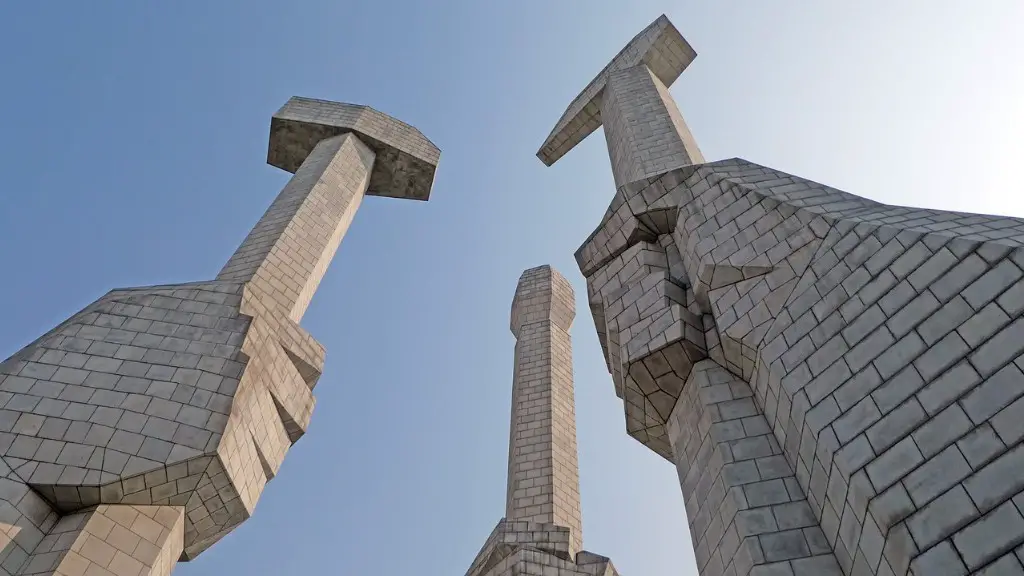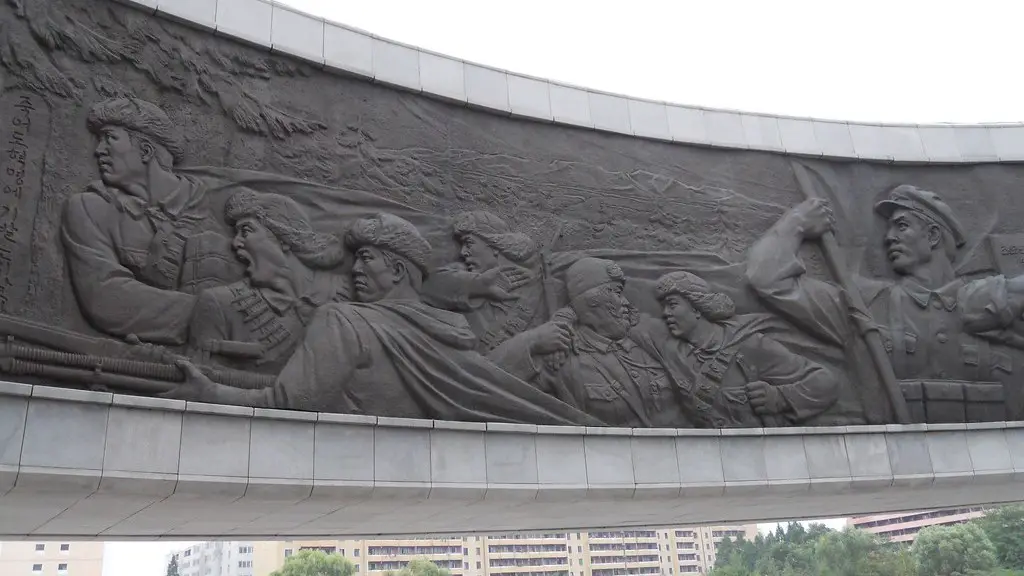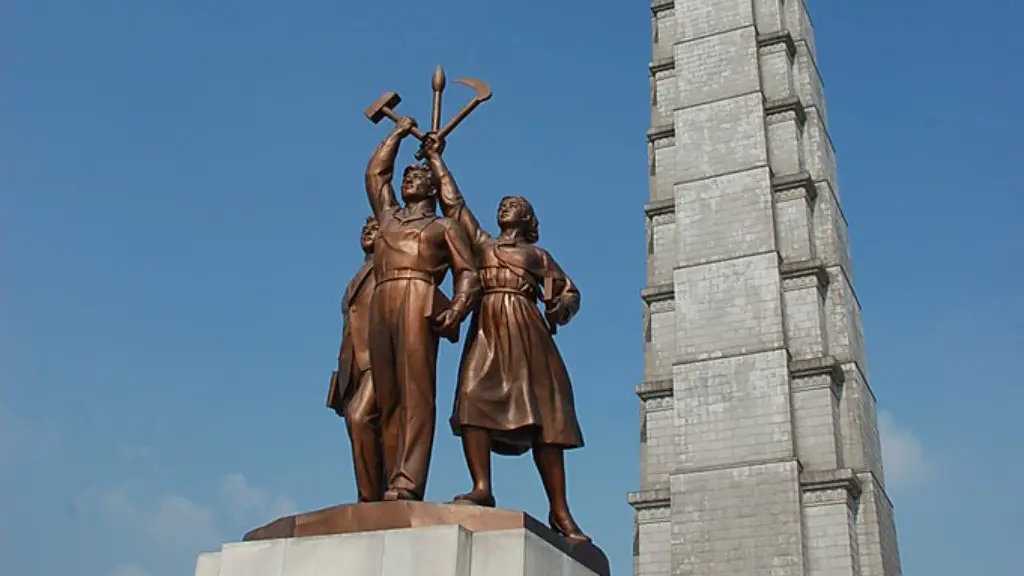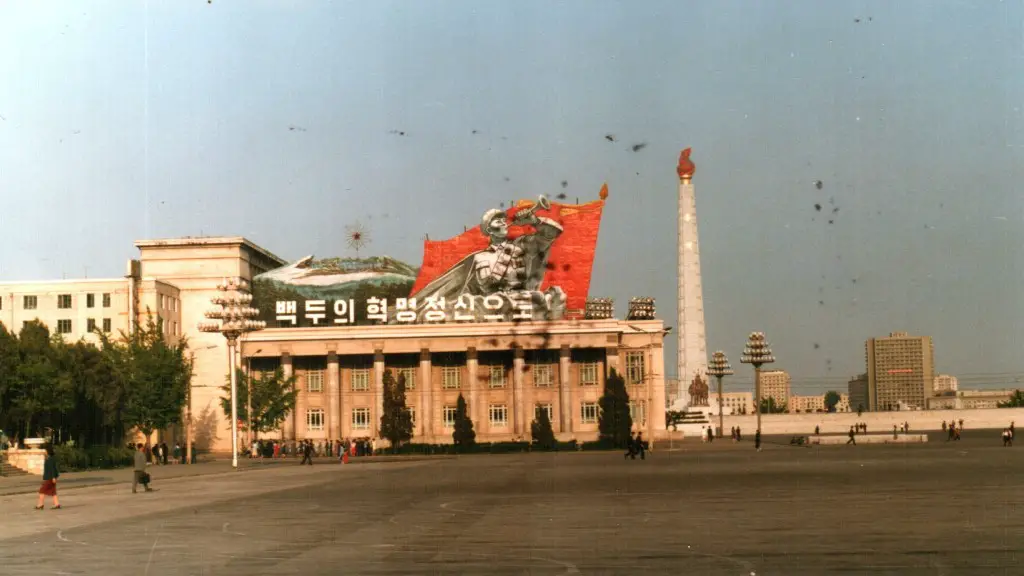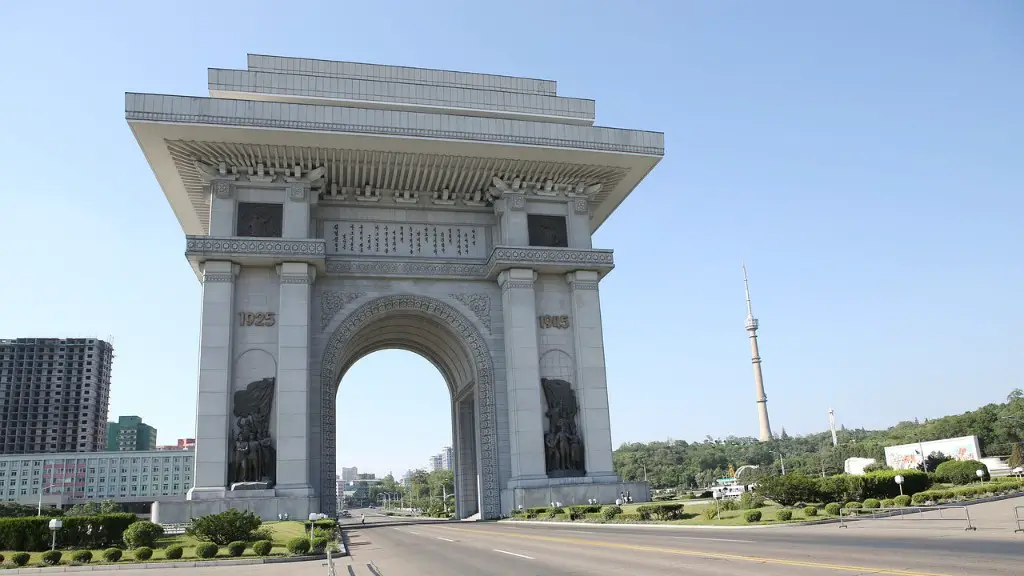The Hermit Kingdom of North Korea is isolated from the world, holding a reign of terror over its citizens, and building a culture of control and fear. It’s difficult to find reliable information about what it’s like to live inside North Korea, so it’s important to educate ourselves about the conditions there. In this article, we’ll take a look at the realities of daily life in North Korea and discuss how individuals living there are being affected.
An important element of life in North Korea is the oppressive state of totalitarianism run by supreme leader Kim Jong Un. The government has strict control over every aspect of people’s lives, from what they do and say to which activities they are allowed to engage in. This authoritarian rule has resulted in widespread civil and human rights violations, with reports of inhumane treatment of citizens. The conditions of the common people have been described as deplorable, with food and medical shortages, and political prisoners living in harsh conditions.
The North Korean government has a strong propaganda machine in place, using fear and propaganda to control their population. Citizens are taught to worship the ruling family as gods, and an emphasis is placed on total devotion to Kim Jong Un. Any criticism of the regime is met with severe punishment, such as imprisonment, torture, and even death. All media and internet access are strictly monitored and censored, and the regime actively denies access to independent news sources.
Living in North Korea is also extremely expensive. The average cost of living is around 50 times higher than in nearby countries, and the currency is not accepted outside the country. With rising inflation and widespread shortages, it can be difficult for citizens to afford basic necessities. What little economic activity exists is mainly controlled by the government, with opportunities for private business limited and often impractical.
North Korea is home to some of the most rigid social norms in the world. Citizens are required to follow rigid regulations, such as wearing certain types of clothing and conforming to certain standards of behavior. This leaves little to no room for individual expression or creativity. North Korea also has extremely limited access to technology. Most citizens don’t have access to the internet, and there are very few computers in use. All non-government-approved foreign entertainment, such as books and movies, are strictly prohibited.
The effects of living in North Korea can be devastating. The lack of political freedom, lack of access to basic needs, and oppressive social norms can lead to a pervasive sense of despair and hopelessness. Mental health problems, particularly depression, are also common in North Korea. With limited resources available to care for mental health issues, North Koreans are often unable to seek proper treatment.
The situation in North Korea is dire, with limited access to basic necessities and a pervasive climate of fear. But despite these difficult circumstances, citizens are still managing to survive and build lives in the face of overwhelming repression. This article is the first step in understanding the realities inside North Korea and how we can help.
Status of North Korean Refugees
The situation in North Korea has driven hundreds of thousands of citizens to flee in search of a better life elsewhere. This refugee population can often suffer from isolation and loneliness due to the cultural differences between their new homes and their home country. Additionally, many North Korean refugees are unable to receive the same level of legal protection as other refugees, as North Korea does not recognize them or accept applications for asylum.
Unfortunately, many of these refugees face exploitation and abuse, as smugglers and employers often take advantage of their vulnerable situation. This can lead to long-term psychological trauma from their experiences. For those who are brave enough to escape, the journey to safety is often fraught with danger and uncertainty. There have been reports of refugees being kidnapped, tortured, and even killed during their journey.
Fortunately, progress is being made to help refugees find safety and a new life. A number of organizations, such as the American Refugee Committee, are providing aid and assistance to North Korean refugees and their families. Additionally, some countries have eased their immigration policies to make it easier for North Koreans to seek asylum, such as South Korea.
Though more needs to be done, these efforts can make a huge difference in the lives of refugees. With the right resources and support, North Korean refugees can find a place of safety and a chance to build a brighter future.
Human Rights Violations
Under Kim Jong Un’s leadership, North Korea has become a horror story for human rights. The oppressive regime has implemented a variety of laws and regulations to control the population, such as strict censorship laws, a ban on abortion, and compulsory military service. Human rights abuses are also widespread, including public executions, torture, and arbitrary imprisonment.
The widespread violations of human rights have garnered international criticism and outrage. The United Nations has issued numerous reports condemning the regime’s actions, and multiple countries have imposed sanctions to pressure the North Korean government to end its human rights violations. Additionally, the U.S. Department of State has identified North Korea as a “country of concern”, and has raised awareness around the issue of human trafficking in the country.
Despite international pressure, the situation in North Korea has failed to improve. Despite the sanctions, the country’s leadership has refused to change its policies, leading to a desperate situation for its citizens. It is only through international pressure and action that the human rights of the North Korean people can be protected.
Opposition to the Regime
In spite of the oppressive climate, there are still voices inside North Korea that are speaking out against the regime. There are a few networks of citizen journalists, as well as various organizations, such as the Fighters for a Free North Korea, that are actively working to raise awareness about the situation in the country. While the regime has attempted to crush these efforts with threats and punitive measures, the people are still finding ways to express their opposition to the government.
Furthermore, many North Koreans have taken to the internet to spread information and raise awareness about the situation in their home country. By using social media and other online platforms, they are able to connect with others and share their stories of living under oppressive rule. This has enabled them to build a powerful movement of resistance in spite of the difficult circumstances.
Of course, individuals inside North Korea are risking their safety and even their lives by standing up to the regime. But their brave words and actions serve as a powerful reminder of the importance of civil liberties and human rights, and the importance of standing up for those rights.
North Korean Economy
Though much of life inside North Korea is shaped by politics and control, it’s also important to look at the economic situation in the country. Despite sanctions and other restrictions, North Korea is still managing to sustain its own economy, though most of it is controlled by the government.
The North Korean economy is largely driven by black market and illegal activities, such as selling weapons and drugs. Additionally, North Korea has also engaged in cybercrime, particularly in the form of ransomware attacks, as well as activities such as counterfeiting currency. Unfortunately, these illegal activities are often used to fund the regime, or to purchase weapons or luxury items for the ruling family.
Despite these activities, there are still opportunities for economic growth in North Korea. For instance, the country has recently opened up to foreign investment and trade, with various countries, such as China and South Korea, investing in infrastructure projects in the region. This can create new economic opportunities for North Koreans and help the country move towards a stronger and more stable economic future.
Such investments can also help North Koreans gain access to needed infrastructure, such as electricity and clean water, as well as more freedom and choices in their lives. This progress, however slow, can have a tremendous impact on individuals living in the Hermit Kingdom.
International Response
In recent years, more countries have opened up to North Korea, leading to diplomatic negotiations and exchanges. This has enabled the regime to strengthen its international ties, providing a chance for progress. In 2018, North and South Korea signed an armistice agreement, ending the Korean War. This was a huge step forward for the region, but there is still much work to be done in order to create lasting peace.
In addition, many countries have also sent aid to North Korea, both in terms of humanitarian assistance and investment. For instance, China is a major provider of aid to North Korea, with the Chinese government providing much-needed food, medicine, and other resources. The hope is that such aid can help improve the situation for those living in the country.
At the same time, there is also the risk that such aid can help the North Korean regime maintain its grip on power, by providing it with the resources it needs to remain in control. As such, there is a great deal of debate surrounding these aid programs, as well as what sort of effect they’re actually having in North Korea.
So while aid can provide a respite from the dire situation in North Korea, it’s also important to remember that the only way to truly create lasting change in the country is through a collective effort of pressure, education, and support. This article is a small step in that direction.
